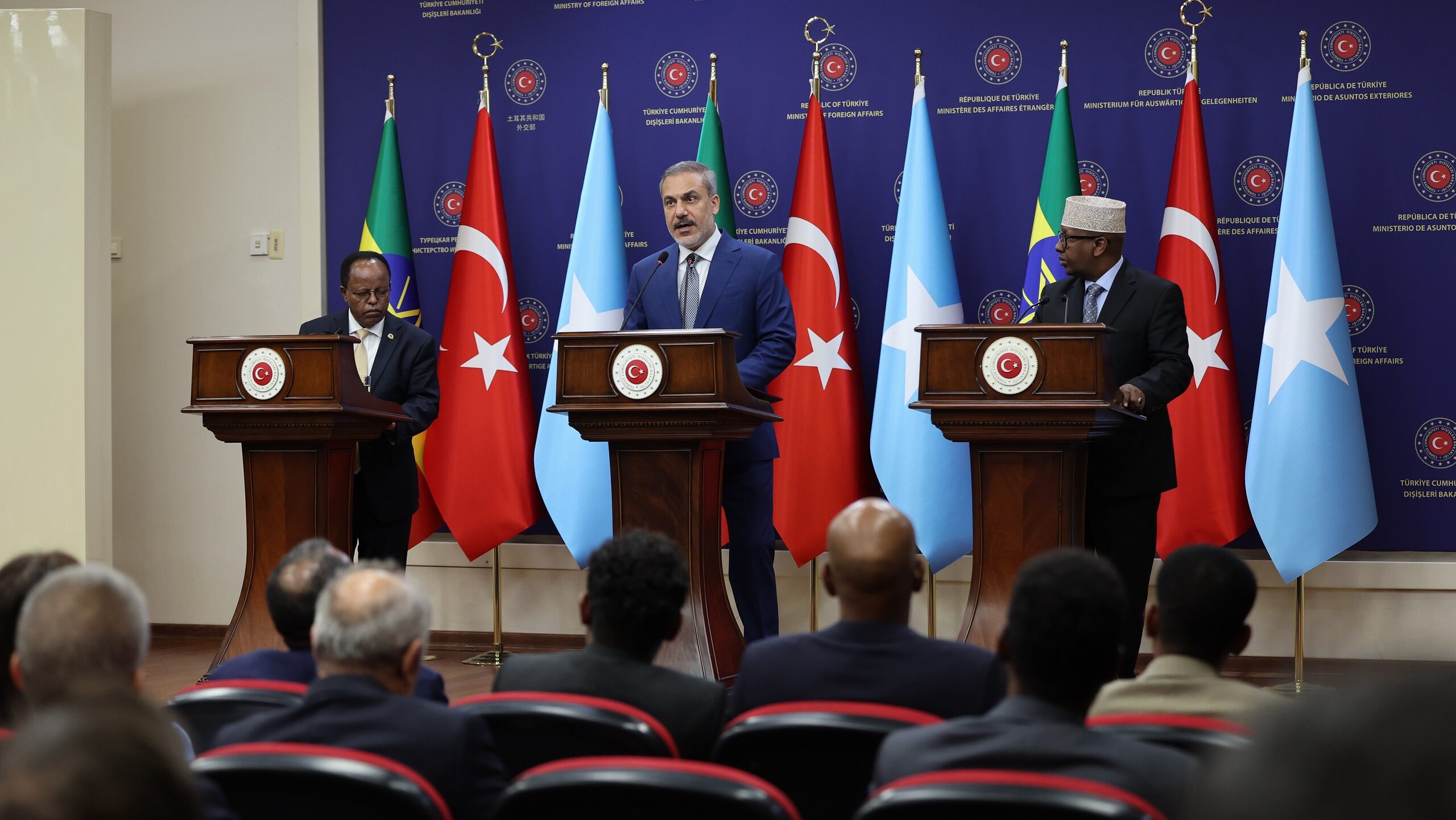Turkey Expands Influence in Africa With Diplomacy, Investments, Drone Sales
Through conflict mediation, financial aid, construction projects, and arms sales, Turkey deepens its economic and political ties with African nations
Ethiopia and Somalia will hold a third round of talks in Turkey on September 17 to resolve a maritime dispute, showcasing Turkey’s growing influence in Africa.
Although Turkey has focused on Somalia, it has expanded its investments and strengthened ties across Africa.
The government and affiliated institutions, like the IHH Humanitarian Relief Foundation, have built mosques in Ghana and Mali, with Mali also receiving assistance to build hospitals.
Turkey has sold drones to several African countries, including Togo, Chad, and Niger.
Trade between Turkey and Africa grew eightfold from 2003 to 2022, surpassing $40 billion last year.
Turkey has made unsuccessful attempts to ease tensions between Ethiopia and Somalia.
The dispute began when Ethiopia signed a deal with the breakaway region of Somaliland, granting it access to a coastline for a naval base in exchange for recognizing Somaliland’s independence. Somalia viewed this as a threat to its sovereignty.
Turkish Foreign Minister Hakan Fidan stated that “notable progress” was achieved in the second round of talks between Ethiopia and Somalia in August.
Aydin Sezer, a foreign policy analyst in Ankara, said Turkey seeks to expand its influence in Africa for economic, political, military, and religious reasons.
Sezer added that the government is interested in economic opportunities and investments that align with the Justice and Development Party’s religiously motivated foreign policy.
Give the gift of hope
We practice what we preach:
accurate, fearless journalism. But we can't do it alone.
- On the ground in Gaza, Syria, Israel, Egypt, Pakistan, and more
- Our program trained more than 100 journalists
- Calling out fake news and reporting real facts
- On the ground in Gaza, Syria, Israel, Egypt, Pakistan, and more
- Our program trained more than 100 journalists
- Calling out fake news and reporting real facts
Join us.
Support The Media Line. Save democracy.
Turkish drones, particularly Bayraktar models, have gained international attention for their effectiveness in Ukraine’s conflict with Russia.
Selçuk Bayraktar, President Erdoğan’s son-in-law, co-owns the company that produces these drones and is seen as a potential successor to Erdoğan. Although the company is privately owned, analysts say government approval is necessary for weapons sales.
Sezer explained that the Turkish government offers financial support to African nations to promote drone sales.
Turkey extends credits and loans to these countries, particularly for UAVs and drones, which lead to sales by Turkish companies
“When discussing economic opportunities, defense industry products are key. Turkey extends credits and loans to these countries, particularly for UAVs and drones, which lead to sales by Turkish companies,” he told The Media Line.
Turkey has particularly strengthened its relationship with Somalia.
In 2016, Turkey opened its largest embassy globally in Somalia, with Erdoğan presiding over the ceremony in Mogadishu.
During a severe drought and famine in 2011, Erdoğan became the first non-African leader to visit Somalia in nearly 20 years.
In 2021, Turkey pledged $30 million in aid to the country.
Sezer noted that Turkish companies managing Somalia’s airport and port have strong ties to the Turkish government.
Ryan Bohl, a Middle East analyst at RANE, told The Media Line that Turkey’s most significant geopolitical push is in the Horn of Africa, where it seeks to expand its naval presence.
Bohl said that while Turkey cannot match the US role in securing the region’s major trade route, it seeks to participate to gain naval experience.
“Turkey has ambitions, one day, to be part of that process and get all of the benefits that that would entail, naval experience, a seat at the table for diplomatic functions in the area, the ability to influence events on the ground, support friends,” he said.
Bohl notes that Erdoğan aims to capitalize on the power vacuum in Somalia and other parts of Africa as China reduces its presence.
Turkey, under Erdoğan, is willing to take the risk … they’re trying to take the risk that perhaps they can restore order there
“I think Turkey, under Erdoğan, is willing to take the risk, and it’s not a big risk because it’s not a substantial military footprint there, but they’re trying to take the risk that perhaps they can restore order there, and they can translate that into greater amount of influence,” he said.
Bohl added that Ankara viewed West Africa as a key opportunity for Turkish construction companies.



